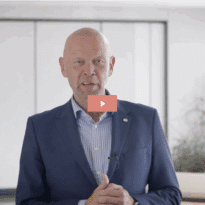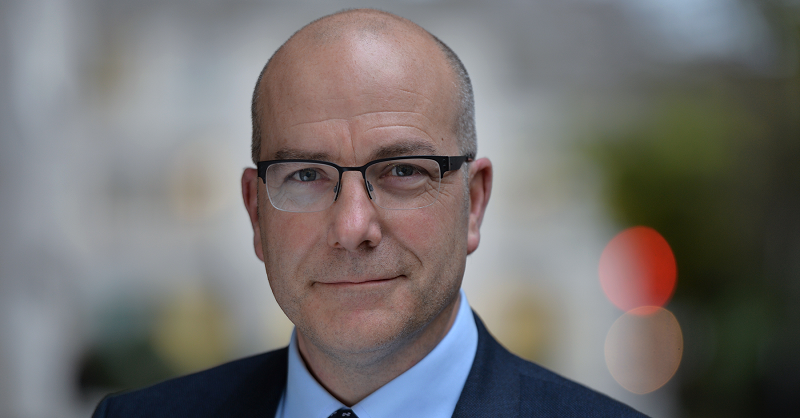Mike Appleby, Investment Manager, Liontrust Sustainable Investment team considers potential economic changes post Covid-19 and how they may affect sustainable investing. Could we see an economy that is cleaner, healthier, safer and more equitable?
This article was first published in the June issue of Professional Paraplanner.
Covid-19 has been a shock to all of us, as well as to the system; the priority now is to get through it with minimal loss of life and damage to the economy.
Like everyone across the world, we have been trying to come to terms with monumental changes to our everyday lives. This has focused our thinking on whether we could see more profound and longer-lasting impacts on the economy and the way people behave, and what implications this might have for investments in our Sustainable Future funds.
We think about the future of the global economy in terms of major long-term trends, and we have identified 20 themes in which we want to invest: the ultimate impact of these is to make our world cleaner, healthier and safer.
While Covid-19 and its fallout will have short-term impacts on many of these themes, both positive and negative, we feel they will be all the more relevant longer term as the economy recovers.
Connecting people: If anyone was unsure what this trend was about, they certainly understand it now. This theme looks at how we can be better connected through the infrastructure that helps us communicate and the service providers we use to do this: think about mobile tower networks and internet, data and voice providers. Companies exposed to this theme have performed well amid recent weakness, as have those within Increasing cyber security as remote working and the need to protect end users increases.
Consumption and behavioural changes: While slowing the spread of the virus, lockdowns have had a negative impact on consumer-facing businesses (travel, dining/going out, collective pursuits, non-essential bricks and mortar retail). For our Enabling healthier lifestyles theme, which promotes exercise through affordable gyms and gym equipment, social distancing has hit businesses hard but we are confident demand will come back quickly post-lockdown, with people potentially even keener to get fit.
Our Making transport more efficient theme, through a modal shift away from driving cars to safer and more efficient public transport (trains and buses), has also taken a hit as these services have all but shut down but, again, we feel this is temporary.
Moving finally to our themes focused on improving quality of life through Enabling innovation in healthcare and Providing affordable healthcare, these have benefited from the broad focus on who can solve this crisis and come up with an effective treatment. It is interesting to note, however, that given the high profile of Covid-19, any eventual vaccine or treatment will likely be delivered at very low margin or close to cost – no one wants to be seen to profiteer from the crisis.
Longer term implications
While too early to be definitive, we do think it is worth spending time trying to understand the longer-term implications of the crisis for the next decade and beyond. Again, we believe this will result in some lasting changes in how society thinks and should ultimately support and accelerate our themes towards an economy that is cleaner, healthier and safer, as well as more equitable.
We would hope to see shifting priorities in certain areas after this outbreak, from realising that a good healthcare system is worthwhile, to remunerating key workers properly and addressing inequality (and removing the ‘low-skilled’ designation), to recognising the value of understanding supply chains and how things get to the shelves.
What has also become very clear is that political agendas can flip when stressed and the shift from austerity to “whatever it takes” suggests at least one of these positions might be wrong.
Of course, any activity will be constrained to some extent by the debt built up to fund current emergency measures but we believe there will be significant shifts in consensus – see box.
Overall, we believe many of the changes coming out of the Covid-19 crisis are about doing things smarter and taking a longer-term view.
Significant shifts in consensus
Liontrust believes the effects of the Covid-19 crisis will result in a change in the way we think about the world, including:
- The desire to eat healthier food and exercise will persist.
- People will become more risk averse and save more, if they can, and be more discerning in what they buy. Buying more insurance to manage unforeseen shocks could be another result and we would expect to see proactive insurance companies benefit.
- People will continue to demand improvements in local air quality for the health of their families. Links between local air pollution and fatality rates from Covid-19 (even small changes in air quality result in significantly higher fatality rates) will only serve to accelerate this.
- Efficiency in the use of materials and the desire to make industrial and agricultural improvements will persist. This will also be true for how we manage water and waste.
- Being forced to work remotely and finding it is a very effective form of communication means people will do this more, saving time and resources.
- Paying tax is good, dodging tax is bad.
- Banks may regain some of the credibility lost in the global financial crisis. Some will, some won’t.
- Companies will take a different view of how they run their business and value will be seen in proactively managing staff and supply chain stakeholders. Society is watching how companies react and some brands will take a long time to recover.
- Demand for quality education will persist.
- People will give up more of their time to help others, either through donations or volunteering.
- Healthcare systems will be more supported and activity around managing diseases should be bolstered.




































